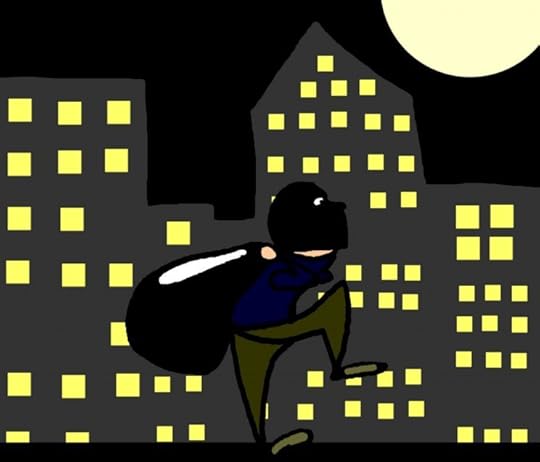Etymology gleanings for October 2016
Mr. Madhukar Gogate, a retired engineer from India, has written me several times, and I want to comment on some of his observations. He notes that there is no interest in the reform in Great Britain and the United States. I have to agree. Nothing we are doing in this area seems to be of much practical use. The horse is dead, and I am almost sorry for beating the carcass. I stick to my opinion that the only way to arouse the public would be to recruit a few people whose voice will be heard everywhere and at once. A letter signed by two Nobel Prize winners (let us say, Toni Morrison and Bob Dylan) or a song by Bob Dylan (rhymed, as in, for instance: “I keep yellin’! Something should be done about spellin’,” or unrhymed) would do more good than all our impotent meetings and blogs. Those few people who know something about the history of Spelling Reform remember only that G. B. Shaw was its avid advocate. And that’s how it should be: Shaw was world famous. Should I accost them? Will they respond? Can I break through the fence of their secretaries and agents?
 This innocent child does not know what she is up to. Poor child! Spelling Reform has failed her.
This innocent child does not know what she is up to. Poor child! Spelling Reform has failed her.Mr. Gogate adds that now the time for the reform has passed: too many people in the world use English. I can add to it comments from some other of my correspondents to the effect that the spellchecker has made all attempts to reform English spelling redundant, among other reasons because changing the system would be too expensive. Perhaps so. But when I see how millions are wasted on something labeled “visions,” “initiatives,” “innovative methods,” and their likes (with no results except improved statistics, and even that is usually disproved some time later), I think that our society is ready to spend inordinate sums of money as long as it believes in “initiatives.” Spelling Reform may cost a lot, but it will save much, much more in teaching people (both natives and foreigners) to read and write English. It is silly to write committee, with almost every letter doubled, gnaw with initial g, whore with initial w (which has never designated any sound), build and bury instead of bild and bery, and choir for what everybody pronounces as kwire. Details are irrelevant. The main thing is to get things going. I don’t expect progress in my lifetime. Only ghouls will triumph.
Slang
This is the question I received: “How does slang vary across languages? Is there one culture or language that has more slang words?” I know too few languages to be able to answer such a question. My impression is that all the modern European languages employ slang very widely, though in this matter it is important to have a precise definition of slang and not to confuse slang (understood as an expressive, colorful language) with professional jargons, thieves’ cant, criminals’ lingo, and swear words. Informal language must have been a universal phenomenon at all times. For example, racy words for copulation seem to exist and to have existed everywhere. However, it appears that English has beaten all records in producing slang. British (American, Canadian, Australian, New Zealand) slang has become a competitor of the Standard. Thousands of words have acquired odd synonyms, very often known only to a relatively small group of people. Urban Dictionary gives numerous examples of such coinages. Outside the English- speaking world, so many people hardly feel like foreigners at home when it comes to language. The extreme volatility of English slang contributes to the same effect. Those who are now around fifty don’t understand the slang used in the movies released soon after the end of World War II, and their parents are sometimes lost while watching modern movies.
Blessing and cursing
It seems to be a widespread phenomenon that the same word means “bless” and “curse.” Possibly this phenomenon is due to the uneasiness produced by cursing. (Those interested in why curse has the synonym cuss may read my post of 5 September 2012 “Do you ‘cuss’ your stars when you go ‘bust’?”) A euphemism makes sense here: people would use a word of the opposite meaning and imply grim irony, as in blessed out, that is, cursed out. Old Icelandic blóta meant “to worship,” but the sense “to curse, swear” has also been attested. The same holds for the noun blót “worship.” Guðbrandur Vigfússon, the author of the great Icelandic dictionary of Old Icelandic (known as Cleasby-Vigfusson), wrote the following at blót: “Metaphorically in Christian times the name of the heathen worship became odious, and blót came to mean ‘swearing, cursing’.” It is doubtful whether this explanation is correct. One might suggest that, since Old Germanic blotan meant “to sacrifice,” people asked the deity either to send them what they were asking for (that is, a blessing) or to punish their enemies and thus curse them. If so, the ambiguity was inherent in the process. Incidentally, Guðbrandur was among those who thought that Engl. bless had been derived from blotan.
I see no problem with German würgen. It is true that its Old English cognate developed only figurative senses (“to condemn, proscribe, etc.”), but in German it has always referred to strangulation; hence Würgengel “the angel of death.” The non-Germanic congeners of würgen also refer to the rope, tangled bushes (hedges), and so forth. Apparently, the activities of this demon were not always associated with a kiss. The creatures known as incubus and succubus also strangle or choke their victims.
A most singular message
 The language police are marching in serried ranks.
The language police are marching in serried ranks.I received a letter from a colleague who wondered at my daring. How could I risk raising my voice against the use of they for a singular object? In my previous “gleanings,” I mentioned the case of criminals, all of whom were males, but the policeman kept referring to each of them as they. At my colleague’s institution, a rule prohibited the use of he or she in such contexts. There are severe reprisals for transgressing the will of the superiors there. It seems that our language police feel as free to act as the criminals I mentioned. Long live democracy!
Like a thief in the night
 An image of language change.
An image of language change.Language change is sometimes almost imperceptible. In the nineteenth century, everybody wrote: “I am of opinion that….” Then the article appeared before opinion, and now we say: “I am of the opinion that….” Dickens wrote: “Under cover of the darkness.” The articles still jump all over the place in this phrase. I remember people saying: “He is legend” (compare the name of the rock band bearing this name and the phrase according to legend). Now I hear only: “He is a legend,” which I don’t like (we need reference to legend, not a legend). At any given moment, people believe that only the version to which they are accustomed is correct, but this is an illusion. Every student of language history knows this.
Images: (1) To Write by Raphaël Jeanneret, Public Domain via Pixabay. (2) “Police Marching During Remembrance Day” by Richard Eriksson, CC BY 2.0 via Flickr. (3) Thief Cartoon by K Whiteford, Public Domain via Public Domain Pictures. Featured image: “Tamara and Demon. Ill to Lermontov’s poem” by Mikhail Vrubel, Public Domain via Wikimedia Commons.
The post Etymology gleanings for October 2016 appeared first on OUPblog.

Oxford University Press's Blog
- Oxford University Press's profile
- 238 followers



